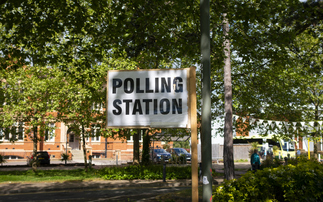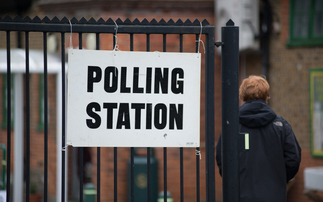Last week's Environmental Industries Commission Summit offered a timely insight into the green economy's on-going Brexit concerns
Last week, before Foreign Secretary Boris Johnson either did or did not threaten to resign over the government's Brexit plans, a group of senior executives gathered in parliament for the Environmental Industries Commission's annual political summit. Unsurprisingly, Brexit dominated the agenda as green businesses and investors sought to understand the implications of the UK exiting the EU - not for certain individual's political ambitions, but for the future health of the country's economy and environment.
Suffice to say, the mood was pretty funereal at times as a sector that had voted overwhelmingly to remain in the EU explored how the benefits that could come from Brexit through agricultural policy reform or a renewed focus on industrial strategy are countered by huge uncertainties and complexities, as well as on-going fears the government could soon be bossed by a small cabal of right wing climate sceptics.
Former energy and climate change secretary Ed Davey and Environmental Audit Committee chair Mary Creagh did little to lighten the mood, sketching out a host of concerns about how Brexit could play out for the green economy.
As Creagh warned the very real fear harboured by the opposition (and some Conservatives) is that Brexit is "a nationalist project; a Trojan Horse for the hard right to scrap social and environmental protections". It is an analysis that was only given further credence over the weekend with Boris Johnson's divisive talk of young people's split allegiances and his dog whistle assertion the UK would only keep environmental rules that were "fair and wise" post-Brexit.
However, as Davey observed in a disclaimer at the start of his speech, no one is "able to tell you anything with any certainty" - the huge array of unanswered questions that continue to hang over the Brexit process make confident predictions about its impacts and implications all but impossible.
On the eve of Theresa May's big Brexit speech in Florence, BusinessGreen takes a look at just 10 of the key green business questions that were raised at the EIC Summit and are still yet to be addressed.
1. Will environmental amendments be attached to the Repeal Bill?
There is a clear majority in parliament for the retention of strong environmental protections, policies, and targets post-Brexit. The government has repeatedly asserted it has no desire to water down such measures. And yet green businesses and NGOs are in near universal agreement that the Repeal Bill does not include sufficient safeguards to ensure environmental measures really are retained and strengthened.
Consequently, there is much talk of amendments being attached to the bill to ensure environmental principles are retained, regulatory bodies are properly tasked with policing EU rules, and Ministers' freedom to use statutory instruments to dilute green regulations is restricted. But while there is plenty of good will towards such amendments their adoption is anything but a forgone conclusion. Conservative backbenchers who would like to back changes to the Repeal Bill remain extremely twitchy about voting against the government when any defeat could trigger a crisis for Downing Street and potentially an election.
As a result, the amendments that are being proposed are deliberately not too proscriptive and the operation to get them adopted is focused more on cross-party groups of MPs reaching out to work with the government to improve the bill, rather than plotting to engineer humiliating parliamentary rebellions. For now, that is. Who know how the autumn will play out as the bill winds its way through parliament.
2. How big is the environmental risk presented by the Repeal Bill's Henry VIII powers?
Creagh warned the sweeping powers the bill grants ministers could pose a major threat to the environment and the green economy if Brexit proves to be the aforementioned Trojan Horse for the anti-regulation brigade in government.
She noted that up to a third of environmental regulations cannot be simply transferred into UK law, meaning that under the current proposals Ministers will have access to extensive use of statutory instruments. She was also disarmingly honest about the prospects of MPs keeping tabs on all these statutory instruments. "We need acute vigilance from businesses and stakeholders," she said, "because the chances of anyone noticing all the changes that could be made are slim".
This risk is further amplified by the fact the bill currently fails to codify the core principles underpinning EU environmental rules, such as the polluter pays or the precautionary principle. "If those principles are not spelled out we are going to have a problem," predicted Creagh.
One potential safeguard suggested by the EAC chair is a requirement, modelled on human rights legislation, for Ministers to formally notify parliament if a change impacts the environment. But whether or not such an amendment is adopted remains to be seen.
3. Who will police the policymakers? Are judicial reviews sufficient?
Both Creagh and Davey were in complete agreement that exiting the jurisdiction of European courts and relying on judicial review to ensure environmental policies are legal could deal a major blow to efforts to improve the UK's environment.
"No one is going to spend £80,000 on a judicial review to give the government a slap on the wrist," predicted Creagh. "We will see an erosion of our environmental rights over time."
Davey was equally forthright, arguing the removal of the threat of EU fines will ease the pressure on ministers to tackle environmental problems. "Just look at air pollution," he said. "The government has been dragged, kicking and screaming every step of the way to address the issue. What happens when they don't have that pressure?" As Davey observed, a Minister who is advised he might face a judicial review is likely to be much more bullish in pursuit of an environmentally damaging policy than one warned he could cost the government millions of pounds in fines.
4. What will happen to the EU's environmental ambition post-Brexit?
Much of the analysis of Brexit has unsurprisingly focused on the implications for Great Britain, but what of the potential impact on the EU?
Davey warned the UK's departure from Brussels' negotiating chambers could have an adverse effect on the EU's environmental ambitions.
Most of the green stories you read about the UK's involvement in Brussels focus on the instances when the British sought to water down environmental rules, he said, but there is another side of the story to be found in all the times the UK pushed for more ambitious action.
"The UK has a world-leading Climate Change Act and we pushed others in the EU to do more," Davey said, recalling how in 2014 the UK worked with France, Germany and others to secure an ambitious energy and climate package in the face of opposition from Poland and a handful of other states. "[Without the UK in the EU] Poland could well lead a push back against those advances we made in 2014 and in Paris," he warned.
5. Will the concerns of UK green industries be heard in Brussels?
Shaun Spiers of think tank Green Alliance noted that whatever happens post-Brexit the UK is likely to gravitate towards one of two trade standards-setting superpowers: the EU or the US.
Any form of trade deal with the EU - which despite protests from the Conservative's UKIP tendency remains the government's goal - means EU standards are likely to dominate. Remember, the negotiating red lines for both the European Council and Parliament stress any trade deal must adhere to EU environmental standards and prohibit any 'environmental dumping'.
But what then happens when new rules are introduced or existing standards modified? Davey gave some insight from his time as a Minister negotiating the EU's most recent energy and climate package in Brussels. The proposals included new auto standards and Davey recalled how the German team was essentially there to get modifications that benefited Mercedes Benz and his job was to ensure Jaguar Land Rover was not left at a disadvantage. Inevitably, a compromise was reached and a package agreed that everyone could live with.
What happens when the UK is no longer in the room, but UK firms are still impacted by the resulting standards? "The EU knows what our interests are in these negotiations, because our position in all previous talks is a matter of record," Davey warned. "I'm not saying they will suddenly regulate against us, but they could - that's the worst case scenario."










